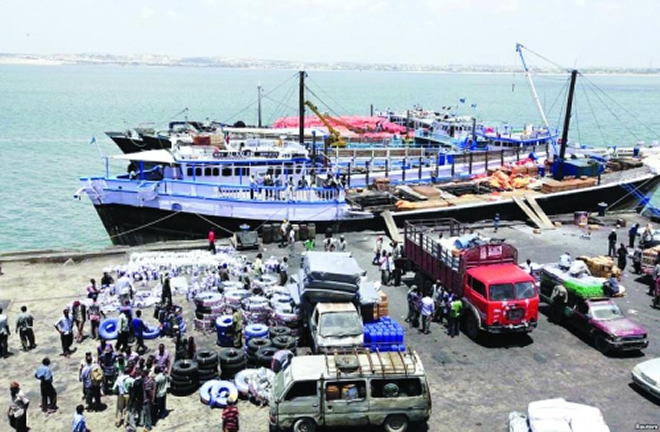

Friday, June 12, 2015
International charcoal trade still funds activities of the al-Shabaab terror outfit in Somalia, a UN Monitoring Group on Somalia and Eritrea has revealed. The scathing report has further revealed that charcoal profits have doubled despite Operation Linda Nchi by the Kenya Defense Forces (KDF) that was launched four years ago.
The charcoal, according to the report, is shipped from the port city of Kismayo — which KDF liberated from the al-Shabaab — where tens of thousands of tones of charcoal are shipped enroute to Dubai , the United Arab Emirates and Saudi Arabia.
The al-Shabaab turned to depending on international charcoal revenue after its other cash cow, piracy — where millions of dollars were minted in ransom payouts, was thwarted by a concerted international maritime campaign.
In a letter dated September 19, 2014 from the members of the Monitoring Group on Somalia and Eritrea addressed to the chair of the Security Council Committee concerning Somalia and Eritrea, the groups notes that to date, the scale of the international trade in Somali charcoal is largely consistent with the period 2012-2013, before Amisom led by KDF captured Kismayo — the artery for Somali international charcoal trade.
The letter names Kenya as being complicit in frustrating the group’s efforts in imposing the ban on Somali charcoal, whose revenue al-Shabaab requires to purchase arms for its continued terror onslaught in the region.
“The supply chain entails a complex picture of collusion and collaboration by traders, transporters, brokers, wholesalers and individuals involved in manufacturing false paperwork to facilitate systematic violations of the ban on Somali charcoal,” notes the UN Monitoring Group, adding: “On the basis of shipments documented and estimates of additional shipments, upwards of one million bags of charcoal have been exported each month from Kismayo, in addition to those exported from Al-Shabaab-controlled Barawe and other smaller ports.”
The overall international market value of the charcoal exported in 2013 and 2014 is pegged at $250 million (Sh22.5 billion), but could be higher since not all shipments were identified. Meanwhile, al-Shabaab continues to benefit from the revenue generated, on a scale greater than when it controlled Kismayo, at charcoal production sites, from checkpoints along trucking routes and from exports, in particular at Kismayo and Barawe.
The Monitoring Group continues to be confronted with efforts to obstruct its work, especially by means of targeting either the investigations or the credibility and reputation of individual members of the Group. “In particular, the Government of Kenya prevented one of the Group’s experts from remaining at his duty station, while vested interests in the name of the Federal Government sought to undermine individual members and prevent the Group as a whole from fulfilling its mandate,” the group claimed in its report.
For instance it says, Principal Secretary of Ministry of Foreign Affairs and International Trade, Karanja Kibicho wrote to the UN Director General office in Nairobi on August 30, 2013 alleging a security threat against Babatunde Taiwo, a member of the Monitoring Group, who was temporarily relocated from his duty station in Nairobi on September 12, 2013.
Although the UN security assessment cleared his return to Nairobi, the Kenya government was not willing to allow Taiwo’s re-entry. Despite a letter dated January 14 2014 and sent to the Permanent Representative of Kenya to the UN, ambassador Macharia Kamau, stressing the importance of Babatunde Taiwo’s immediate return to Nairobi, to date, the government is yet to respond.